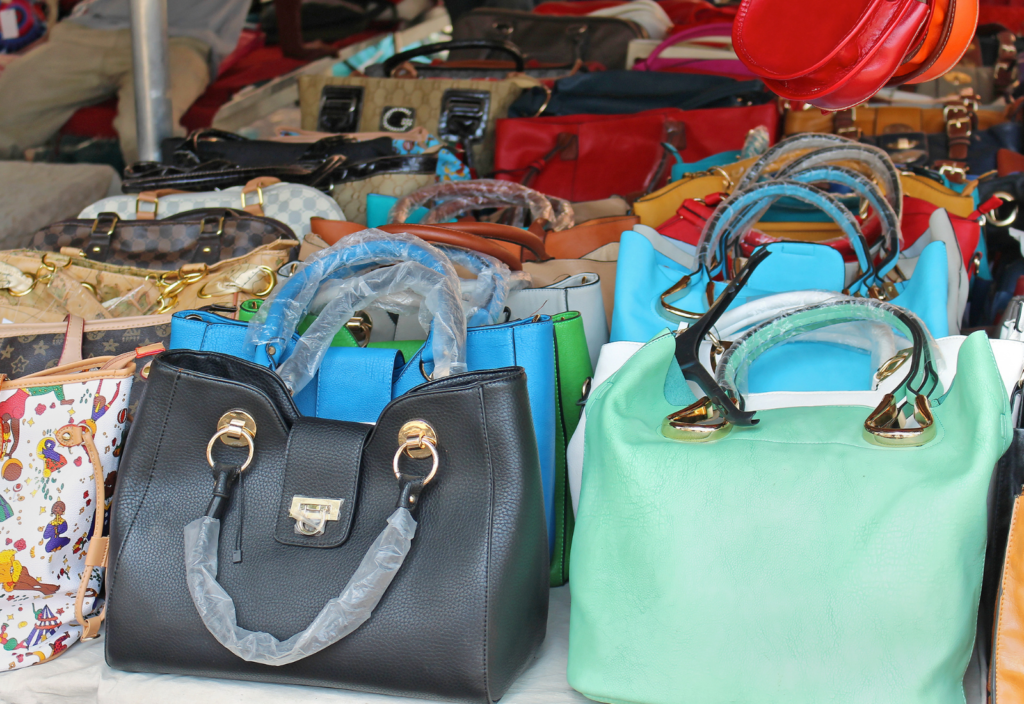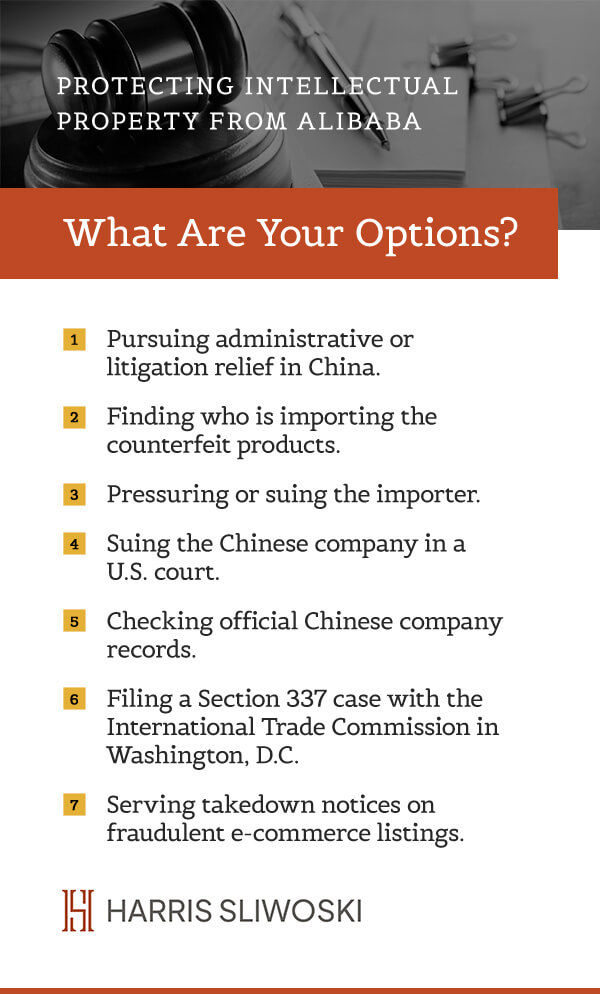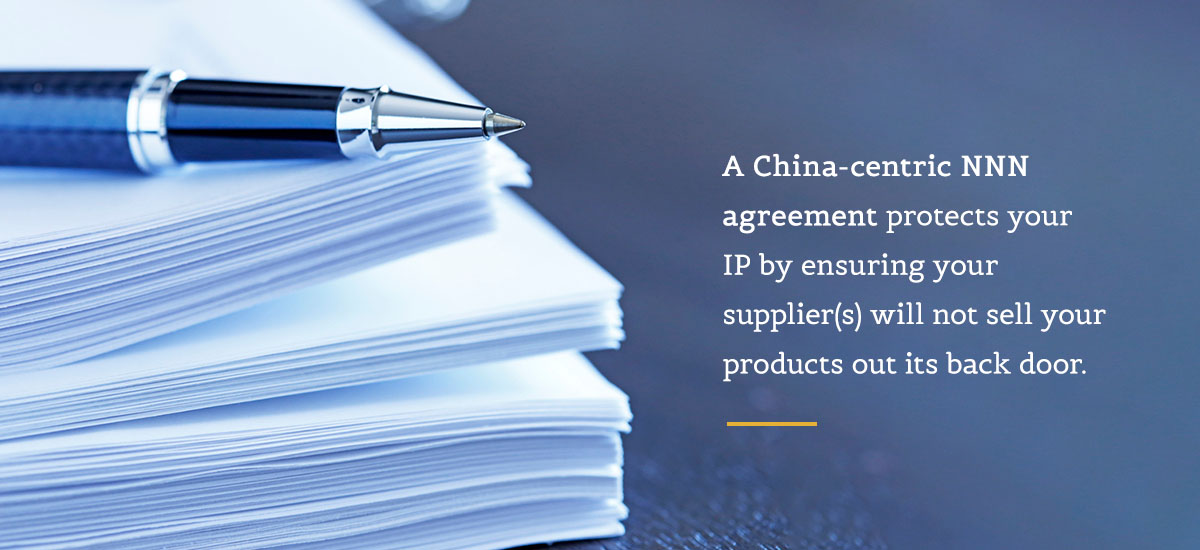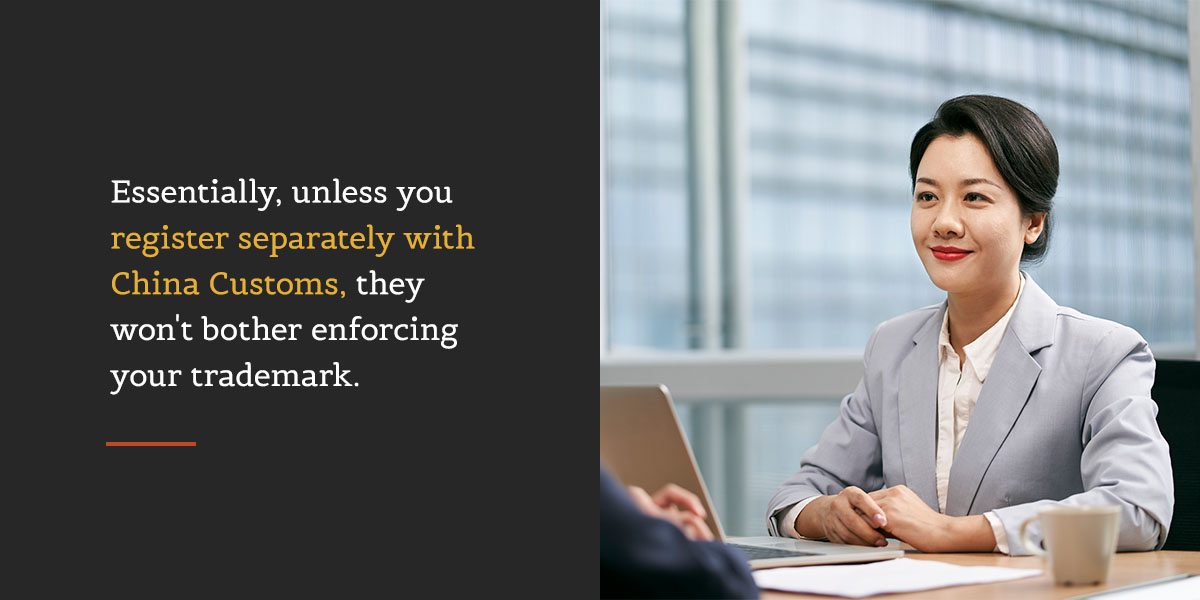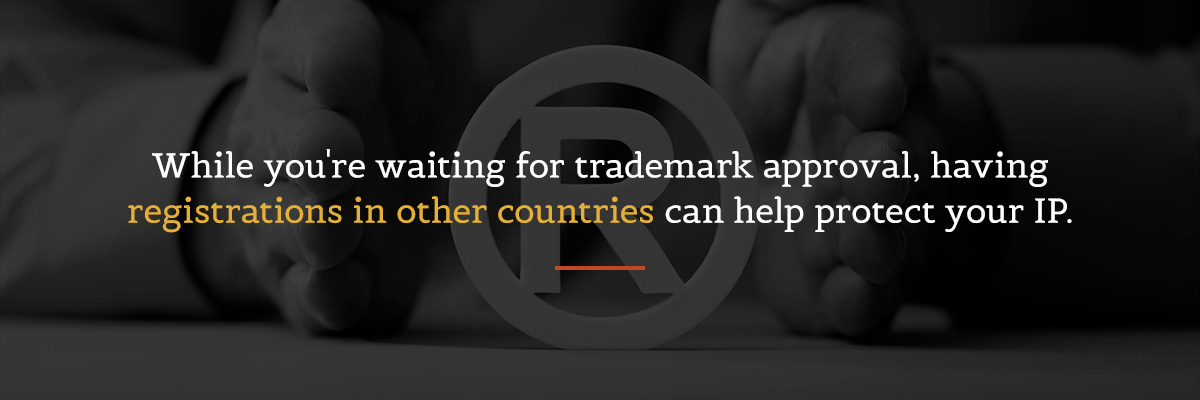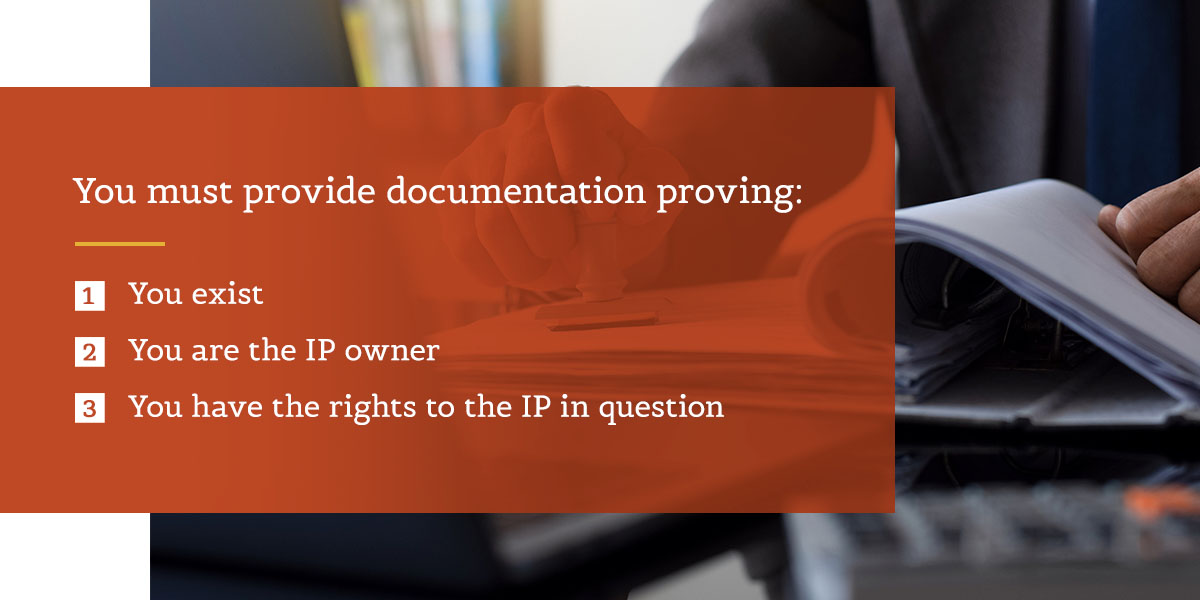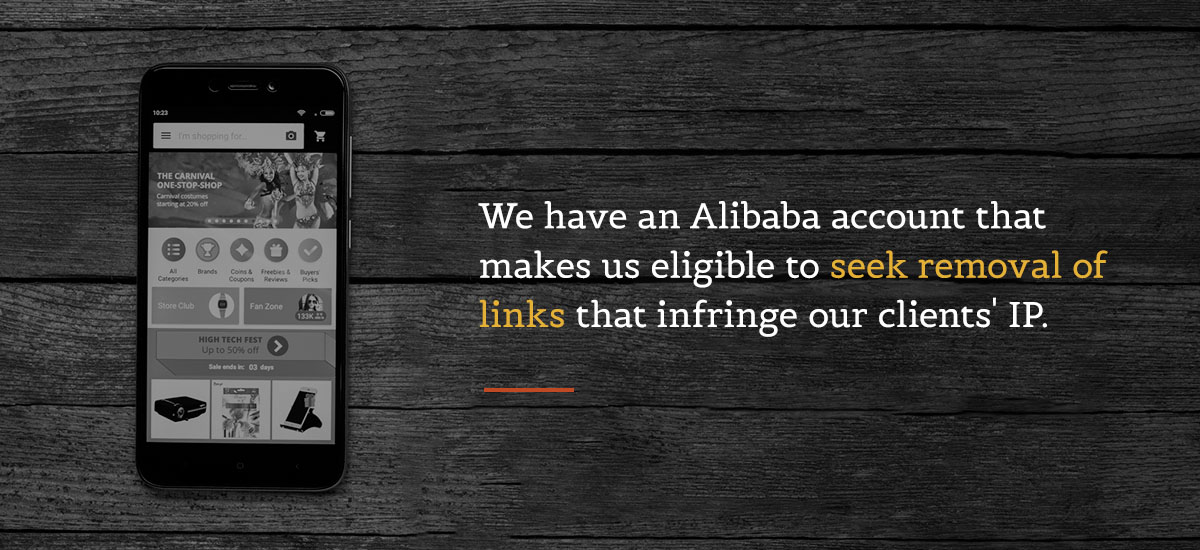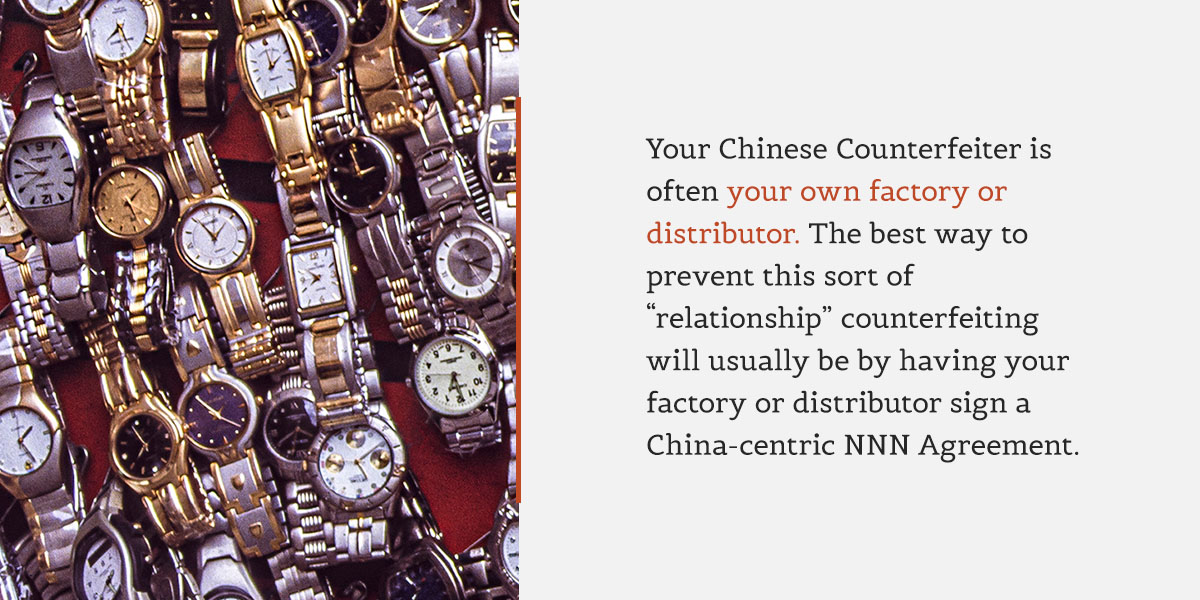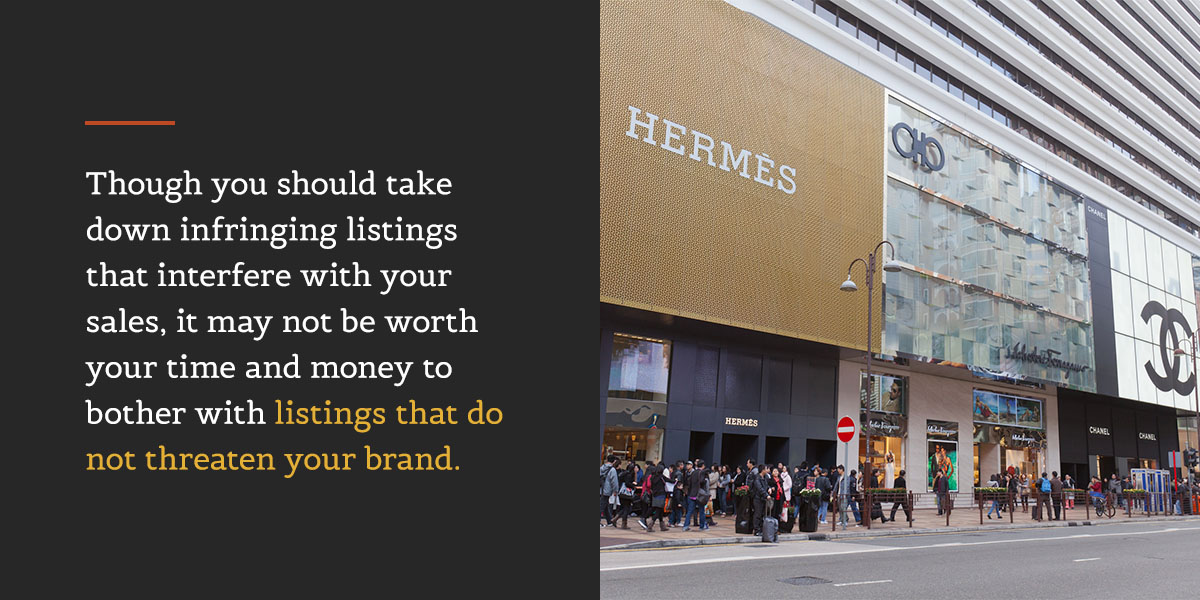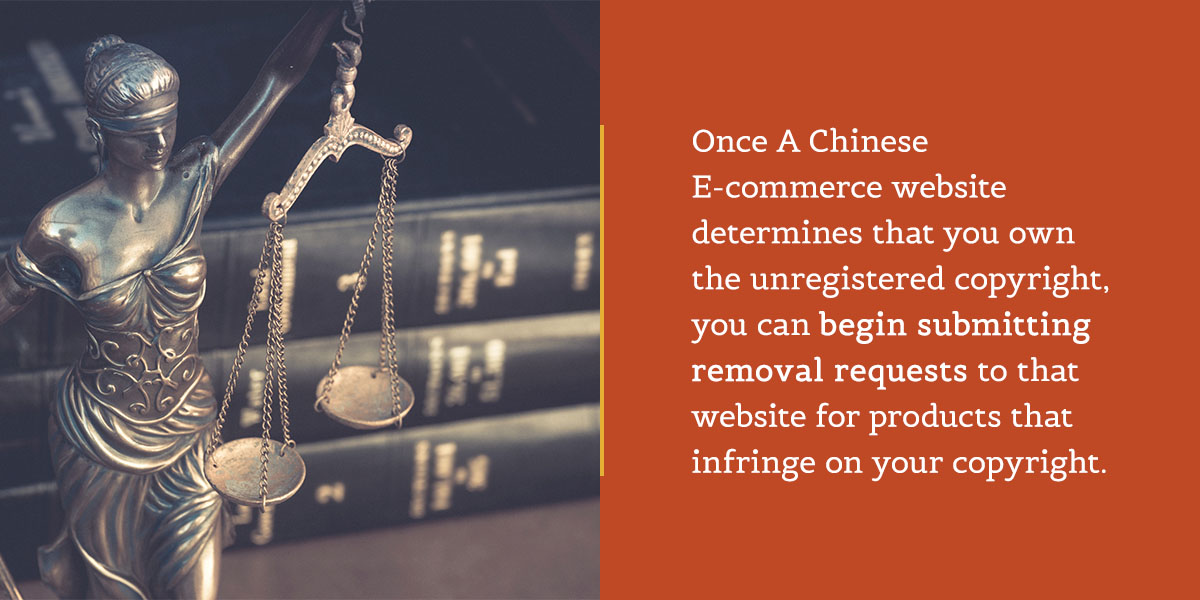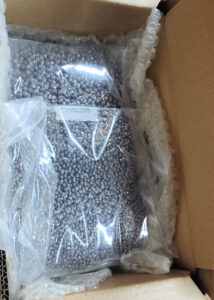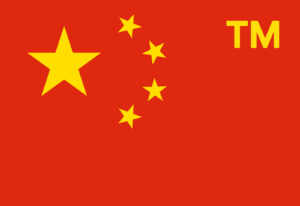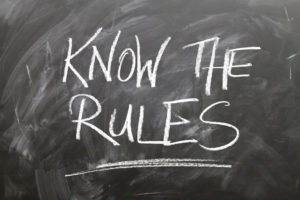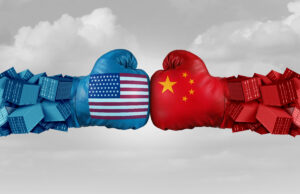It’s no secret that China is the world’s leading source of counterfeit goods. Barely a day goes by without an American or European company contacting one of our intellectual property lawyers to get counterfeit products removed from a Chinese e-commerce site.
Even though it may seem there’s no way to protect your brand from counterfeiters on China websites like Alibaba, this idea is actually false. You can usually easily and cheaply stop IP infringement when you find it (even in China), if you know the steps you should take to do so. First, though, let’s go over what exactly we mean when we’re talking about counterfeit products.
What Is a Counterfeit?
Legally speaking, a counterfeit is a fraudulent copy of an item. This definition includes anything from money to electronics to luxury handbags. Counterfeit product listings remain a big issue on Chinese e-commerce marketplaces such as Alibaba, Taobao, Tmall, and many more.
Our lawyers have a near 100% success rate at getting counterfeit products removed from legitimate Chinese e-commerce websites. But our success rate depends largely on the advertised product being a counterfeit, as that term is commonly defined by lawyers, not businesspeople.
How to Stop Chinese Counterfeits
You just discovered a Chinese company is knocking off your product. What do you do? Most companies go to their regular lawyers and ask them what to do — and most lawyers just don’t know.
Now what?
Reaching out to a lawyer experienced in cross-border litigation and China counterfeits is your best bet. There are a lot of options for dealing with Chinese counterfeiters, and knowledgeable lawyers like those in Harris Sliwoski’s intellectual property team are here to help you determine what’s best for your specific situation.
Questions We Ask
Some of the more common questions we ask when we get an email or call asking us to take on a China counterfeiting matter include:
- What IP registrations — including copyrights, trademarks, and patents — do you have and where?
- Which (if any) of your IP registrations is the counterfeiter infringing?
- Have you recorded your IP with any customs offices in any country?
- Do you believe you hold any copyrights that are not registered anywhere, and is the counterfeiter using any of them?
- Do you know anything about the Chinese company you believe to be knocking off your products?
- Have you had any prior dealings or contracts with this company?
Once we have a good feel for your situation, we begin discussing the next steps.
What Are Your Options?
If someone is counterfeiting your products in China, there are several routes you can take:
- Pursuing administrative or litigation relief in China. You can sue the counterfeiter in a Chinese court. Arbitration may also be an option if you have a contract with the counterfeiters (most likely your own manufacturer) that calls for it.
- Finding who is importing the counterfeit products. Often, the U.S. importer is closely connected to the company in China that is knocking off its products.
- Pressuring or suing the importer. Sending a cease-and-desist letter to the importer of counterfeits of your products can be an effective way to deal with the Chinese company as well. Suing the importer often makes sense if the cease-and- desist letter does not work.
- Suing the Chinese company in a U.S. court. Though suing for damages in a U.S. court usually is not the best tactic to take against a Chinese counterfeiter, it can be a smart move if it allows you to seize funds or other assets belonging to the counterfeiter or get an injunction blocking its sales.
- Checking official Chinese company records. You can often use the information in these records to impress upon the Chinese company why it needs to stop copying your products, especially if they show U.S. connections of the company or its owners, officers, or directors.
- Filing a Section 337 case with the International Trade Commission in Washington, D.C. A Section 337 case formally declares an infringement has taken place. This action is particularly effective if you have a patent or unregistered trademark you need to protect. You can often pursue these cases without having to serve the Chinese defendant under the Hague Convention service of process rules.
- Serving takedown notices on fraudulent e-commerce listings. Taking down counterfeits of your products on e-commerce sites can oftentimes be fast, easy, and effective. However, the ease of this process depends on the existence and quality of your IP registrations.
How to Prevent Counterfeits from China Knockoff Brands
It’s never too early to take action to prevent Chinese companies from counterfeiting your products. The best thing you can do to protect your copyright from Chinese knockoffs is to be proactive. Plan now with your IP filings for takedowns (and other enforcement actions) later.
Though you can probably survive a Chinese company selling a much cheaper version of your product, your chances of surviving against products that duplicate your product, are legally allowed to use your brand name on it, and cost half as much as yours could be the death knell for your company. And this can happen if you don’t take appropriate measures to guard against malfeasance by your own suppliers and other business partners. That’s why we cannot stress enough the importance of having China registered trademarks and China non-disclosure, non-use, non-circumvention (NNN) agreements as a key part of your counterfeit prevention strategy. A China-centric NNN agreement protects your IP by ensuring your supplier(s) will not sell your products out its back door. Note that a Western-style non-disclosure agreement (NDA) for China will almost certainly decrease your IP protection, not increase it.
Registering China patents and China copyrights is also important to your strategy, but in our experience, having a China trademark is usually the fastest and easiest way to get offending goods taken down from Chinese websites.
Register Your Trademark(s) with the China Trademark Office
Registering your trademarks with the China Trademark Office is the essential first step for just about any company that is having its product made in China or that faces a counterfeiting threat from China.
Though you can sometimes remove counterfeit listings from foreign-facing Chinese e-commerce sites with a trademark registration from another country, many Chinese e-commerce sites require a Chinese trademark registration to get a takedown. They also usually move considerably faster against counterfeiters if you have a registration.
This is because China is a first-to-file country, meaning that whoever is the first to secure a trademark has the rights over that trademark — that also means you have no rights in that mark until it gets registered. The trademark registration gives you the legal capacity to enforce your rights to that mark, and it should be one of the pieces in your overall strategy.
It’s a good thing, then, that China trademark applications are moving much faster now than they did in years past. Our China trademark lawyers report that it is taking about seven months from application to registration of a Chinese trademark.
For any company concerned about counterfeit goods coming from China, your next step should be to register your trademark with China Customs.
Register Your China IP with China Customs
Registering with China Customs is more of a practical decision than a legal requirement. Though China Customs officials can conduct a search of the China Trademark Office’s registry to determine if goods they are examining infringe on a registered trademark, they usually only check against their agency’s database.
Essentially, unless you register separately with China Customs, they won’t bother enforcing your trademark.
You can only register with China Customs after the Trademark Office has issued you a trademark certificate. Though the registration process usually adds three to five months to your registration timeline, it’s well worth the additional wait.
You’ll need to provide Customs with information about your business as well as the IP you wish to register. The specific documents usually include:
- A Chinese-language copy of your business license or certificate of incorporation
- A copy of the Chinese registration certificate for your trademark, patent, or copyright
- A power of attorney (POA) signed and executed by the IP owner
- Pictures of the goods for which you are seeking protection and their packaging
After approving your application, Customs will contact you any time they discover a shipment of goods that could be infringing on your intellectual property. You’ll have three working days to request seizure of the goods. Assuming you take this action and post a bond, Customs will inspect the shipment for you.
If Customs concludes the goods are infringing, they will generally do one of two things:
- Remove the infringing mark and donate the goods to charity
- Destroy the goods if the mark cannot be removed
They will then deduct the costs associated with storing and destroying the goods from your bond.
Building IP Walls Outside China
Chinese companies can get counterfeit products on the market incredibly quickly, which is why we often tell our clients to build “IP walls” in countries other than China. While you’re waiting for trademark approval, having registrations in other countries can help protect your IP.
For example, if you are selling your product in the United States and in Spain, you should focus on securing trademarks in both countries as quickly as possible, among other things. Neither trademark will technically provide any trademark protection in China, but they can still help get infringing ads removed from websites similar to Alibaba.
If you find “your” product on Alibaba while the trademark is still unregistered, the chances Alibaba will remove it are slim. If you have a Spain trademark, your chances of removing an infringing Alibaba ad clearly targeted at Spanish customers are better. The same holds true for the United States. Having a registered Chinese trademark, though, significantly improves your odds of successfully removing the ad.
Equally important is preventing the offending product from reaching Spain or the U.S. Spanish Customs has the authority to block, detain and seize incoming products that violate intellectual property rights in Spain and other EU countries. The United States and most other EU member states have similar procedures.
How to Take Down Counterfeits from Alibaba and Other Chinese E-Commerce Websites
The process to register on Alibaba as a seller is surprisingly simple. After setting up an account, sellers have the option to become Gold or Verified Suppliers. These are paid memberships the site offers to trustworthy sellers — Verified Suppliers specifically have to undergo a series of third-party audits to maintain their status.
That said, not every seller needs verification to operate on the site. According to the Office of the United States Trade Representative’s Notorious Markets List, intellectual property rights holders have reported that the site’s controls for vetting sellers and penalizing repeat offenders are lacking. This creates a breeding ground for counterfeiters.
Fortunately, almost all Chinese e-commerce sites, including the Alibaba family of sites, have formal internal procedures for removing product listings that infringe a third party’s IP rights.
You must follow these procedures to the letter to get these websites to remove infringing listings. Before you can begin, you must provide documentation proving:
- You exist
- You are the IP owner
- You have the rights to the IP in question
You can only submit a takedown request after you have submitted these documents and received verification from the e-commerce site.
Assuming everything goes well, most e-commerce sites will remove the counterfeit products within a week or so after you submit your takedown request. But when things don’t go well — which, judging from the volume of phone calls and emails we get on this issue, happens rather frequently — it is vital to have a person on your side who speaks Chinese, understands Chinese intellectual property law, and is experienced in dealing with the particular website posting counterfeits of your products.
This individual’s job will be to communicate with higher-level employees of the sites to explain why the listing infringes on your intellectual property. Sometimes, we find that constantly pushing the problem to higher levels within the company is effective for getting products taken down, especially when we make clear that things will go easier for them if they remove the listings.
Experience is also important. Your business’s history in dealing with Alibaba counterfeit claims usually plays a large role in how quickly the issue gets resolved — they call this their “good faith mechanism.” Using a law firm that has a proven track record of reliable submissions will usually be the best and fastest way to get counterfeit listings taken down.
How Does the Process Work?
Alibaba allows companies to file complaints about any IP infringement — including patents, trademarks, and copyrights — through the Alibaba Intellectual Property Protection Platform (IPP Platform).
We have an Alibaba account that makes us eligible to seek removal of links that infringe our clients’ IPs. We do this by submitting the following:
- Our client’s “business license”
- Any formal IP registration documents
- Sometimes, a POA signed by the client authorizing us to file the complaints on their behalf
- IP registration number(s)
- Title of IP
- Name of the IP owner
- Type of IP
- Country of registration
- Time period during which the IP registration is effective
- Time period during which the IP owner wishes to protect their IP rights
Once Alibaba verifies the provided information, we provide the infringing links. Alibaba almost always removes the listings fairly quickly afterward.
Note that only the copyright or trademark owner or its authorized representative can make takedown requests, and sites vary as to the sort of authentication they require. While virtually all sites require POAs, the big Chinese sites know our lawyers well enough that they almost never require that we provide them with a formal POA document to achieve a takedown.
Additionally, we’ll need to provide proof that you have registered your IP somewhere. As we previously mentioned, while some Chinese sites will take down products with foreign IP registrations, China registrations are always better. China is legally obligated to recognize copyrights owned by persons from nations that are parties to the Berne Convention — but having a copyright registration, and especially one from China, will help things run more smoothly.
For complaints concerning patent rights, we also need to prove the connection between the counterfeit listing and the IP being infringed. Alibaba normally then sends our complaint to the infringing party.
The offending seller then has three working days to respond to the takedown with a counter-notification, which is a claim that the seller owns the copyright. If they do file a complaint, we’ll need to deny it, and then Alibaba will handle the “dispute.” As you would imagine, counterfeiters almost never file a cross-complaint. Most of the time, they just slink away.
But if your case is like any of the other cases we’ve worked on, it won’t be over even after the counterfeits get removed. Once the takedown process begins, it pretty much continues forever. Counterfeiters don’t just give up after their first upload gets taken down — that’s why companies hire us to monitor and report. After we’ve removed the existing counterfeits, we discuss what next steps make sense for your company and your situation.
We also try to figure out who is doing the counterfeiting, how they are doing it and whether anything can be done to stop it or slow it down. Often, we find that our clients’ counterfeiters are their own factories or distributors. Having a China NNN Agreement can help prevent this situation from affecting your company.
What About Counterfeits in Other Chinese Marketplaces?
We have achieved similar results with China’s other leading and legitimate online marketplaces, including JD.com and DHgate. But as you would expect, China’s smaller and sketchier marketplaces are more problematic when it comes to intellectual property protection.
These smaller websites usually lack clear instructions on their website, so we often need to contact someone directly by telephone to start the process. That said, except in the rare occasions where we’re dealing with a pirate site, China’s e-commerce marketplaces usually don’t want to be sued for hosting counterfeit items. So long as we do all the work for them, they’ll almost always take down rogue products and content.
Should You Sue?
While our China intellectual property lawyers have been successful with almost every takedown request we’ve filed, there are some limits to what can be done beyond removing Alibaba copyright infringements.
We do not advise suing these websites unless and until we have tried and failed to get the counterfeit listings taken down. Lawsuits are expensive, and based on our track record in securing takedowns, the odds are overwhelming that we will never need to file one on your behalf.
If you’re considering suing the infringing company, you’ll want to make sure you have a strong case and that you sue in the right jurisdiction. Being smart about your suit can significantly improve the chances that the judgment gets enforced.
Remember: Anger Is Not a Strategy
Companies that see knockoffs of their products too often want to do “anything and everything” to stop it, but that’s not always the best use of their time and money.
Generally speaking, if you’re not selling well in a country, or you don’t plan to sell there at all, trying to stop knockoffs there often isn’t worth the time and money. The same goes for going after knockoffs with which your products aren’t actually competing.
Allow me to explain what I mean. Many years ago, I went to an art gallery in Hanoi and saw a painting I loved going for around $4,500. Later that day, I saw counterfeits of that painting selling for only $50. I ended up buying the original, which now hangs on a wall in my office.
While it was much cheaper, I never once considered buying the copy because it lacked everything the original had. I wanted a beautiful and well-done piece of art, not the equivalent of what hangs in the rooms at a Holiday Inn Express.
The point of this anecdote is that cheap knockoffs usually target people who would never purchase the real thing. The person who buys the $50 knockoff is not the person who might buy the $4,500 original. These are two different markets and two different customers. Though you should absolutely take down infringing listings if they interfere with your sales, consider whether it’s worth the time and effort to go after products that aren’t actually threatening your brand.
My Copyright Is Unregistered. Can I Still Take Down Alibaba Knockoffs?
In any situation, the best thing you can do is to first register your IP and then pursue the protections a registered status provides. But what should you do if your copyright is unregistered?
While registering your copyright is a clearer way to prove ownership, Alibaba’s IPP Platform does permit takedowns based on unregistered copyrights, and our international IP lawyers have had success in doing this for our clients.
Like with a registered copyright, we need to file a Copyright Claim Statement through the IPP Platform to prove ownership. The submission requirements are as follows:
- Your claim that specific links contain your copyrighted work and that your copyright is being used without your consent
- Your name
- Proof of ownership reassignment, if you are not the creator
- Date, time, and place of creation
- Method of creation — for example, photography, programming, or recording
- Date of first publication
- Evidence of first publication, such as the exact location of the copyrighted work from an official website or catalog
- Description of the copyrighted work’s major characteristics
This process typically takes longer than if the copyright was registered with a representation of the work — around three business days if all the required information has been submitted.
For most companies, this is not a DIY process. Failing to properly submit everything will get your copyright takedown request sent to purgatory before you learn that your request has been denied.
If Alibaba decides to establish your copyright ownership, you will receive the following email:
“尊敬的XX, 您好: 欢迎您使用阿里巴巴集团知识产权保护平台。 您在本平台提交的知识产权XX著作权权属证明已审核通过 请登陆http://ipp.alibabagroup.com查看并进行其它操作。 感谢您对阿里巴巴集团知识产权保护工作的关注和参与! 阿里巴巴集团知识产权保护团队 Dear XX, Welcome to Alibaba Intellectual Property Protection Platform. Your submitted proof of intellectual property right XX著作权 has been successfully authenticated. Please log in http://ipp.alibabagroup.com to view and proceed with further action. Thank you for your attention to and participation in our intellectual property protection. Alibaba Intellectual Property Protection Team”
Now that Alibaba has established your ownership of the unregistered copyright, you can begin submitting claims for each infringing item within the IPP Platform. You’ll need to provide individual hyperlinks to each page where the items are listed on all of Alibaba’s portals, including Taobao, AliExpress, and Tmall, among others.
You can follow a similar process for disputes on other well-known websites, like DHgate and JD.com. Trying to take down counterfeits of unregistered IP on other marketplaces can get complicated, so seeking legal help is a good idea for most companies.
Final Thoughts
Here’s the bottom line. Many companies have knockoffs of their products sold on Alibaba or similar websites, and these knockoffs negatively impact sales of the real thing. Even after you successfully file a complaint, keeping knockoffs off these sites is like playing Whac-A-Mole — as soon as you remove them, a fresh round pops up to replace them.
So, what can you do? Simple. Make sure you register your China IP with the relevant agency, as well as record it with China Customs. While taking these steps won’t get rid of counterfeits entirely, they’ll certainly make getting rid of them a lot easier. And if you need to take down infringing product listings that already exist, you’ll want someone with experience on your side.
What do you think? Have you experienced any problems with China knockoff websites?










